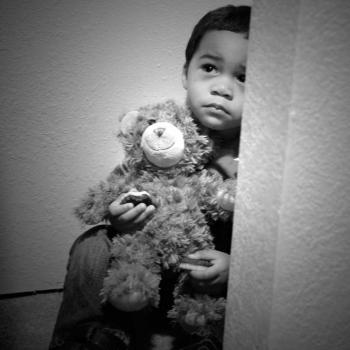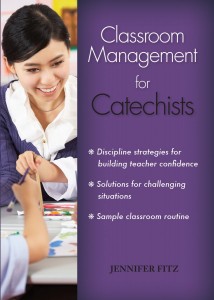One more to file under “This is not a gun blog, but . . .” a public school teacher in California pulled the trigger on his firearm and was surprised to discover a bullet came out.
Guys, this is how guns are designed to work: Pull trigger => Series of deadly events ensues.
What happened in this classroom was not an “accident.” What happened is that the weapon did exactly what it was supposed to do.
For those of you who have no experience with firearms, allow me to clear up some things that may have you confused if your gun safety education consists of “things I saw on TV.” From the news report:
The teacher had just told the class that he wanted to make sure his gun wasn’t loaded, when the gun fired, according to Gonzales.
No no no. If you want to make sure your weapon is unloaded, then unload your weapon. If you aren’t sure how to do this, the much-maligned NRA offers a “basic pistol” course where you can learn what you need to know and practice your skills under the supervision of an instructor whose idea of “unloading” does not involved firing a weapon into a room full of teenagers.
The gist of it is that you remove the ammunition the same way you put it in (only backward) kinda like the way you turn off your car by doing the opposite of what you did to turn it on. Yes, you could instead stop your car by running it out of gas or by ramming it into a concrete wall, but that’s not how you wanna do it. If you want to be sure your car isn’t going anywhere, you check the brake and you check the gear shift and you check where the key is . . . you don’t lay on the gas “just to make sure.”
Guns are machines. You can learn to operate machines safely. Even we who are not all that mechanically-inclined can learn basic things like “not shooting teenagers.”
The second major sign this teacher was completely clueless about gun safety:
The teacher was about to use the gun for a demonstration about how to disarm someone, according to Gonzales.
That would be a big fat no. If you are taking a self-defense course and the instructor is using live weapons pointed at real people, get away.
There are a variety of options for force-on-force training, but all of them involve variations on pretend guns. (Some of the pretend guns require a good bit of safety equipment for training sessions, because they do fire projectiles that could seriously injure you.) Do you know what responsible instructors do when they have a class learning realistic scenarios through re-enactments? They make sure there are no live weapons in the room.
Not only do they not use real firearms, they check for things like making sure no one’s left a pocket knife in a jacket or what have you, because if you’re doing a drill that simulates an attack scenario, it’s possible the student (or instructor) will instinctively reach for his or her real weapon without even realizing it.
This teacher was incompetent and should not be armed.
People Who Should Have Their Licenses Taken Away
Chances are you have seen a scenario like the one at Seaside High School, and chances are you saw it on TV. The “accidental” shooting is a common plot point. Now good fiction involves inevitable foibles of human weakness, and rank stupidity is fair game. What is not fair is screenwriters and directors who treat “accidents” like the one at Seaside as if they are unavoidable, rather than the gross act of negligence that actually occurred. Would you tolerate a crime drama where a good-guy police officer ran over a student with his patrol car because he was being Mr. Expert “confirming the vehicle was turned off” by laying on the gas?
I hope not. That’s murder. Don’t give cars to officers who don’t know how they work. Don’t give firearms to officers who don’t know how they work. And don’t give teaching credentials to people who haven’t mastered even the rudiments of their subject area.
The Law That Really Needs to Change
People of good will are free to hold any number of opinions on what laws we should or should not have concerning matters of prudential judgement, so let me indulge an observation: The students in that classroom were required by law to be there. Like this student:
One 17-year-old boy suffered moderate injuries when fragments from the bullet ricocheted off the ceiling and lodged into his neck, the student’s father, Fermin Gonzales, told KSBW.
. . . The 17-year-old boy’s parents were shocked when he returned home with blood on his shirt and bullet fragments in his neck. The student’s parents rushed him to a hospital for X-rays.
“He’s shaken up, but he’s going to be OK,” Gonzales told KSBW. “I’m just pretty upset that no one told us anything and we had to call the police ourselves to report it.”
His teacher was incompetent to the point of firing a weapon in the classroom. The administration was incompetent to the point of neither seeking medical attention nor notifying the parents their child had been shot. And yet if that boy’s parents decide to keep their son home from school out of fear for his safety — a fear that has been proven to be grounded in reality — they could lose custody of their child.
This is the law of the land across most of the United States: No matter how dangerously incompetent your local public school is, you don’t have the option to simply not attend.
Do lawmakers care? No, because it doesn’t affect them. People in power have the money to afford private school, and they have the education and resources to comply with local homeschooling regulations, so their kids aren’t forced to attend the local public school. Meanwhile, if you try to say that maybe compulsory education laws should be revisited, heads start to spin. Don’t you care about kids?? Education is important! This affects all of society!!!
Yes it does. I’m strongly in favor of providing good education to all children. But here’s something else I’m in favor of: Poor parents not being required to send their children into schools where the teachers are firing weapons.
Yes, education is important. But you have to be not-dead in order to be educated. I think that an awful lot of parents who don’t know much about school do at least understand that “not getting shot” is a good first requirement for choosing a school. Quit pretending school administrators are all-wise and all-good. Anyplace where your kid gets sent home with bullet fragments in his neck is not a place you should be required by law to send your child.

Photo courtesy of Wikimedia, Public Domain



















